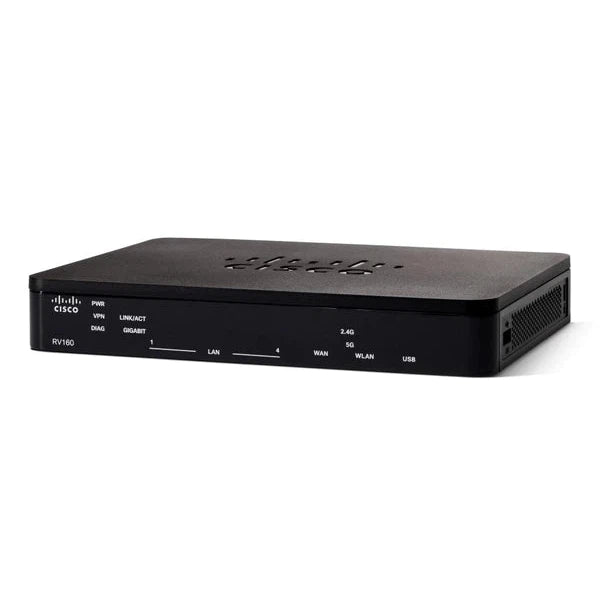Routers & Gateways
If you are looking for a router or gateway, you’re in the right place. This will serve as your guide in understanding the purposes of these tools. We’ll go over the common features to look for including a buyer’s guide to help you find the best option.
You’ll want a router to ensure that every device in your home or office is connected. Without a router, there would be no Internet connection at all. Today’s routers and gateways will provide you with excellent Internet connectivity so you can get whatever task done.
Let’s begin now with what you need to look for in a router/gateway.
Features of routers and gateways
What are the common features of a router or gateway? Let’s take a look at what they are:
Wi-Fi Access Point
Wireless routers will have Wi-Fi access points. These will be built into the routers themselves to ensure access for any nearby devices. These wireless routers will operate either the 2.4 GHz or 5GHz frequency bands.
We will discuss frequency bands in detail later on. Also, it’s important to note that there are routers that are dual-band. Which means they can be able to operate on both 2.4 GHz and 5Ghz frequency bands.
Broadband routers
These routers will require an Ethernet cable for connecting the router to a computer. These can also be used if you are using a telephone as well to connect to the Internet. These configurations can be done via your Internet Service Provider or ISP.
Some of the features will include connectivity ports. Keep in mind that these broadband routers may not have built-in Wi-Fi.
WAN Type
This will determine if your router has Ethernet or LAN ports. If you plan on connecting other devices such as printers, you’ll want to pay attention to this feature. Printers can be connected to the Internet and thus transmit data faster in order to print something you need.
Limitations for devices
The main responsibility of a gateway is to make sure that a specific number of devices can be connected to it. A gateway can be combined with an Internet router or modem. If you’re using a WiFi router, a network can handle so many devices on the same network.
There are other gateways that can perform certain tasks such as filtering traffic, converting data from one media format to another, and for the purpose of using other devices such as telephones and fax machines.
Buyer’s Guide
Now that you are aware of the common features and gateways of routers/gateways, these are the considerations you’ll want to look for. During the buying process, pay attention to the following:
What type of router do I need?
The type of router may come down to a need or preference. If you need a more stable, faster connection, you could utilize the use of a wired router. However, if you want to expand the connection to other devices, you’ll need a wireless router to take care of that.
What band do you want to operate in?
As mentioned, there are two types of bands on wireless networks: 2.4GHz or 5GHz. Or you can operate on a dual band which uses both. Each band will determine the amount of speed you’ll be able to use.
At the same time, network efficiency will also be a key component in the band type you use. If you want faster speed and efficiency, 5GHz will be your best choice. However, there are plenty of smart home devices that require a 2.4GHz connection.
In this case, you may be using multiple devices. If you plan on using smart home devices and wireless devices, you may need to go for a dual-band router.
How much can you afford?
Of course, the best performing routers and gateways can command a higher price. Your decision will usually be based on what you can afford. The best performance that fits your budget should be something to look for.
This is better than finding the cheapest option. That’s because you may be sacrificing performance and overall quality if you do. It’s important that you find a router that will provide you with enough speed for all your usual tasks.
Take assessment of what your most critical needs are. From there, you can find a router/gateway that will match it. Before you do, decide what your budget floor and ceiling is.
You may need to spend a little more than you need to. But if it fits your critical needs, it may not hurt to do so.
Limitation of devices
You might choose a wireless router. However, there is a limit of how many devices you’ll want to connect to it. Therefore, it is important to decide on a gateway that will allow you a maximum number of devices.
Furthermore, gateways can also ensure that no bad devices or connections are made. Especially from an outside device that may be connecting with you for malicious purposes.
What type of gateway do you want?
You have several types of gateways. These include web application firewalls, which can filter and regulate traffic from a server. You also have media gateways for data conversion, email security gateways to prevent malicious attacks, and also VoIP trunk gateways if you need to use regular telephones or fax machines.
Choosing a standalone gateway will be based on what your needs and preferences are.
Final Thoughts
A router/gateway will serve so many purposes. Whether it’s connecting multiple devices or regulating traffic, you might find one that will fit you best for your home or office. Be sure to find the best one based on your needs and preferences.
Of course, finding one that best fits your finances will be key. The last thing you want is a router/gateway that doesn’t measure up to your standards. We hope that this guide will be helpful in your search.
Once you find the best router/gateway, you’ll be able to connect and operate your devices without issue.







